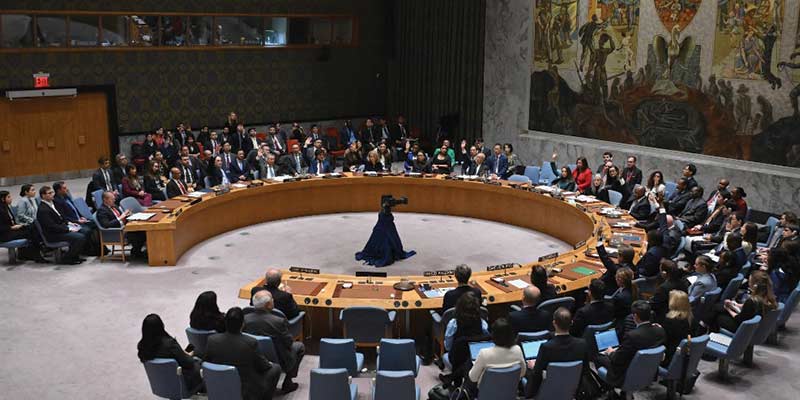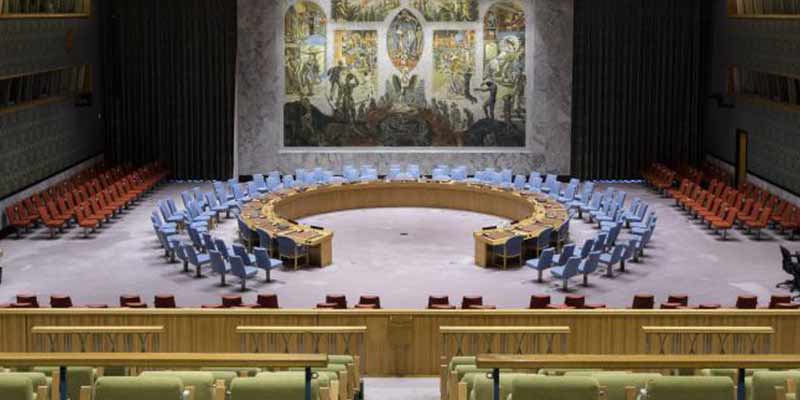- World
- Jan 03
5 new non-permanent members take their seats in UNSC
• Five elected members of the UN Security Council officially began their two-year terms on January 2, with five others leaving the world’s premier body for peace and security.
• The new non-permanent members are Denmark, Greece, Pakistan, Panama and Somalia.
• They replaced Ecuador, Japan, Malta, Mozambique and Switzerland, whose terms ended on December 31, 2024.
• The flags of the countries, who will serve during 2025 and 2026, were installed during a special ceremony outside the chamber.
• The new members will join existing non-permanent members Algeria, Guyana, South Korea, Sierra Leone and Slovenia, whose terms started on January 1, 2024.
• The Security Council is composed of 15 countries, five of which — China, France, Russia, the United Kingdom and the United States — are permanent members.
UN Security Council
• The United Nations Charter established six main organs of the United Nations, including the Security Council. It gives primary responsibility for maintaining international peace and security to the Security Council.
• All members of the United Nations agree to accept and carry out the decisions of the Security Council. While other organs of the United Nations make recommendations to Member States, only the Security Council has the power to make decisions that Member States are then obligated to implement under the Charter.
• The Security Council held its first session on January 17, 1946 at Church House, Westminster, London. Since its first meeting, the Security Council has taken permanent residence at the United Nations Headquarters in New York City.
• A representative of each of its members must be present at all times at UN Headquarters so that the Security Council can meet at any time as the need arises.
• The Security Council takes the lead in determining the existence of a threat to the peace or act of aggression.
• It calls upon the parties to a dispute to settle it by peaceful means and recommends methods of adjustment or terms of settlement.
• In some cases, the Security Council can resort to imposing sanctions or even authorise the use of force to maintain or restore international peace and security.
• The Security Council has a Presidency, which rotates, and changes, every month.
• The Council is composed of 15 members.
• Five permanent members are: China, France, Russian Federation, the United Kingdom, and the United States.
• Ten non-permanent members are elected for two-year terms by the General Assembly.
The 10 non-permanent seats are distributed on a regional basis as follows:
i) Five for African and Asian States.
ii) One for Eastern European States.
iii) Two for the Latin American and Caribbean States.
iv) Two for Western European and other States.
• Every year, the General Assembly elects five non-permanent members for a two-year term.
• Voting is conducted by secret ballot and candidates must receive a two-thirds majority, or 128 votes, even if they run uncontested.
Manorama Yearbook app is now available on Google Play Store and iOS App Store


